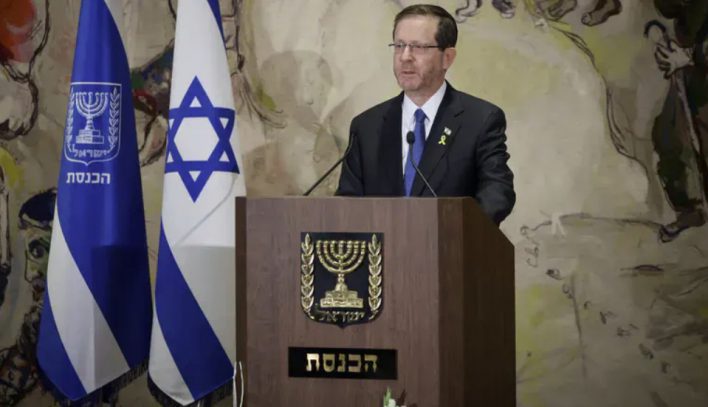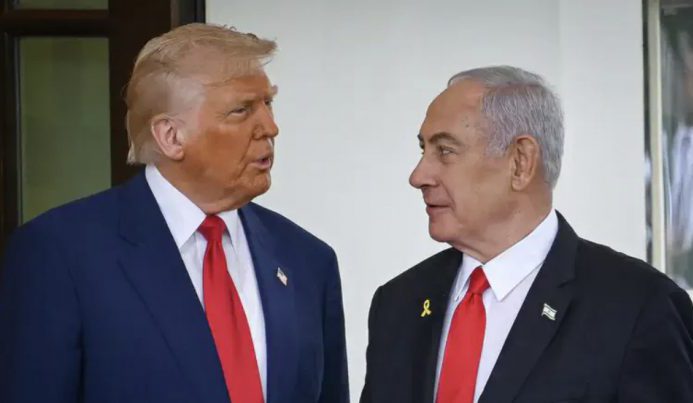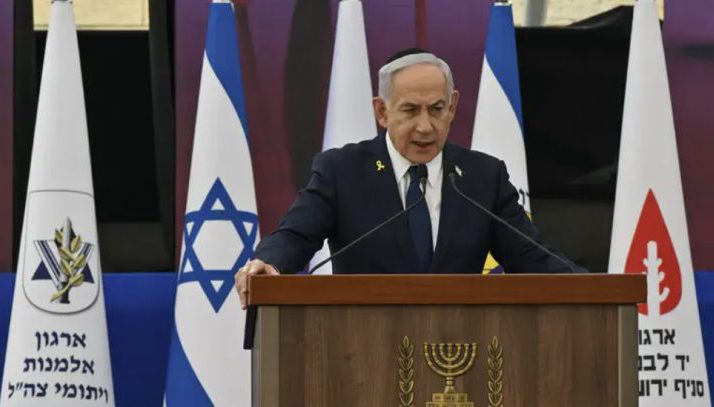President Herzog Calls for a Strategic Diplomatic Vision “The Day After” War, at National Security College Graduation
At the graduation ceremony of Israel’s National Security College (MABAL) on Wednesday, President Isaac Herzog delivered a powerful address to senior military and civilian officials, emphasizing the need to pair military strength with a renewed diplomatic vision as Israel looks ahead to “the day after” the current conflict.
Held annually, the ceremony marks the culmination of a year-long program designed to shape Israel’s future leaders in national security, defense, and diplomacy.
A Call to Look Beyond the Battlefield
President Herzog opened with a forward-looking challenge:
“My words today are dedicated to the diplomatic component of our national security… looking ahead, to the day after this historic campaign.”
He acknowledged the frustration many Israelis feel toward the international community, which he accused of moral failure in its response to the Oct. 7 Hamas atrocities:
“International organizations turned their backs on us. Human rights groups ignored horrors. Women’s organizations stood silent in the face of shocking testimonies of sexual violence. And international legal institutions… acted with immoral hypocrisy by amplifying antisemitic voices.”
Despite this, Herzog stressed the enduring value of global alliances, especially with the United States, which has remained a vital strategic partner.
Operation Rising Lion and a Shifted Strategic Landscape
Herzog hailed the success of Israel’s military campaign against Iran and its proxies, highlighting:
“Our security forces… broke the Iranian ring of fire and dealt a severe blow to their genocidal ambitions.”
He described the current moment as a “historic window of opportunity” to translate military success into diplomatic momentum.
“We must not miss this moment… A strong Israel must not hide behind fortress walls but reach out again for peace—peace rooted in strength.”
Toward Regional Peace and Normalization
Drawing on the legacy of peace with Egypt and Jordan, and the more recent Abraham Accords, Herzog advocated for expanding normalization with additional Arab states, including:
- Saudi Arabia
- Lebanon
- Syria
He also emphasized the importance of deeper ties with:
- India
- Africa
- Europe
- The broader international community, including engagement with the Palestinians.
“This is the true path to long-term national security. Our future depends on our ability to combine immense military power with a sober diplomatic vision.”
Hostages and National Morality
At the core of Herzog’s message was an unwavering moral imperative: the return of all hostages held in Gaza.
“Bringing all the hostages home… is not only a moral obligation. It is a declaration tied directly to our national resilience. The State of Israel does not abandon its own.”
He urged political and military leadership to make this the foundation of Israel’s next phase in Gaza and regional diplomacy:
“Complete victory will not be the day we rest on our laurels. It will be the day we turn military success into a broad strategic initiative.”
Praise for U.S. Support and Leadership
Herzog reaffirmed the centrality of the U.S.-Israel alliance, praising President Trump for his role in the Abraham Accords and his consistent support for Israel:
“The deep alliance between Israel and the United States has a critical, historic role to play in this diplomatic effort.”
He expressed hope that the Prime Minister’s upcoming visit to Washington would bring breakthroughs on the hostage deal, regional cooperation, and long-term strategic goals.
Conclusion: A National Duty to Act
President Herzog concluded with a resounding call to leadership and action:
“We will not rest, and we will not stop, until every hostage comes home. The next chapter must be written now—with vision, with strength, and with the courage to pursue peace.”
Key Themes:
- Transition from war to diplomacy
- Moral clarity in the face of international double standards
- Strategic regional normalization
- Enduring alliance with the United States
- Hostage return as a national and humanitarian imperative





